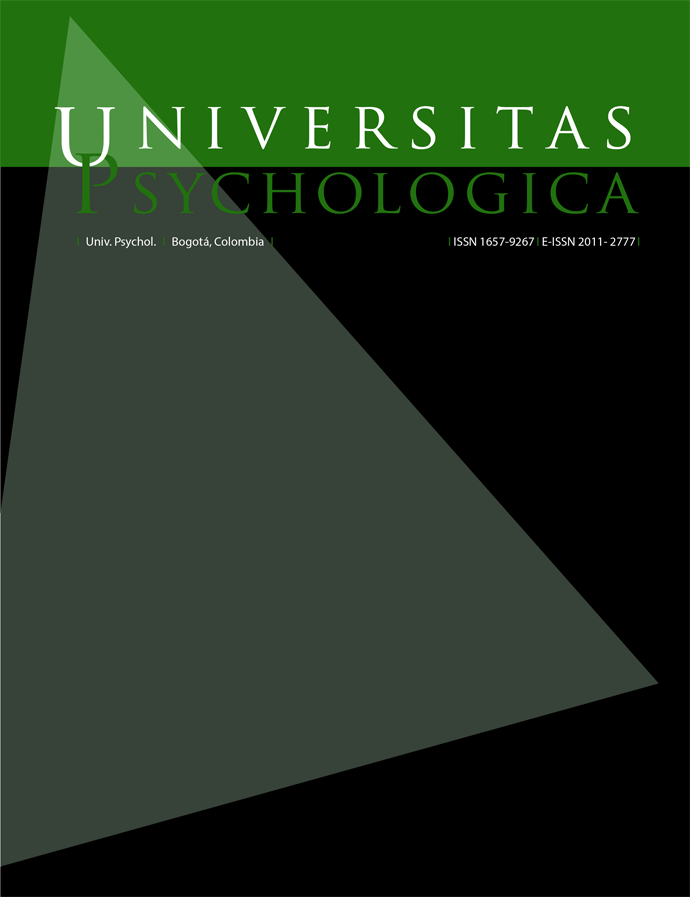Resumen
Este estudio tiene como objetivo analizar los síntomas del trastorno de estrés postraumático (TEPT) que podrían aparecer durante el encierro de estudiantes universitarios, además de su evolución y los efectos diferenciales que el contagio podría ocasionar a estos síntomas. 270 estudiantes respondieron a una encuesta creada específicamente para este estudio. La encuesta se administró una vez a la semana durante las últimas cuatro semanas de encierro. Resultados: las respuestas de los estudiantes no mostraron evidencia de síntomas de TEPT. Además, la baja frecuencia e intensidad de los síntomas disminuye a medida que avanzan las semanas de confinamiento. Asimismo, los estudiantes infectados muestran más síntomas que los no infectados, excepto en lo que respecta al estresor Miedo al contagio. El encierro experimentado por nuestros estudiantes no ha sido una fuente de estrés. Si bien esto puede parecer positivo, también promueve conductas de riesgo, por lo que conviene realizar campañas de sensibilización para promover hábitos que ayuden a prevenir la transmisión del virus.
Balluerka, N., Gómez, J., Hidalgo, M. a D., Gorostiaga, A., Espada, J. P., Padilla, J. L., & Santed, M. Á. (2020). Las consecuencias psicológicas de la Covid-19 y el confinamiento. Informe de investigación. Servicio de Publicaciones de la Universidad del País Vasco. https://www.siis.net/documentos/ficha/551534.pdf
Brewin, C. R., Andrews, B., & Valentine, J. D. (2000). Meta-analysis of risk factors for posttraumatic stress disorder in trauma-exposed adults. Journal of Consulting and Clinical Psychology, 68(5), 748-766. https://doi.org/10.1037//0022-006x.68.5.748
Brooks, S. K., Webster, R. K., Smith, L. E., Woodland, L., Wessely, S., Greenberg, N., & Rubin, G. J. (2020). The psychological impact of quarantine and how to reduce it: Rapid review of the evidence. The Lancet, 395(10227), 912-920. https://doi.org/10.1016/S0140-6736(20)30460-8
González, N. L., Tejeda, A., Magaly, C., & Ontiveros, Z. O. (2020). Impacto psicológico en estudiantes universitarios mexicanos por confinamiento durante la pandemia por Covid-19.: Psychological impact on Mexican university students due to confinement during the Covid-19 pandemic. https://doi.org/10.1590/SciELOPreprints.75
Horesh, D., & Brown, A. D. (2020). Traumatic stress in the age of COVID-19: A call to close critical gaps and adapt to new realities. Psychological Trauma: Theory, Research, Practice and Policy, 12(4), 331-335. https://doi.org/10.1037/tra0000592
Jarero, I., & Artigas, L. (2018). Conceptualización Teórica sobre el Trauma Agudo y el Estrés Traumático Continuado Basada en el Modelo del SPIA. Iberoamerican Journal of Psychotraumatology and Dissociation, 10(I), 10.
Justo-Alonso, A., García-Dantas, A., González-Vázquez, A. I., Sánchez-Martín, M., & del Río-Casanova, L. (2020). How did Different Generations Cope with the COVID-19 Pandemic? Early Stages of the Pandemic in Spain. Psicothema, 32.4, 490-500. https://doi.org/10.7334/psicothema2020.168
Liang, L., Ren, H., Cao, R., Hu, Y., Qin, Z., Li, C., & Mei, S. (2020). The Effect of COVID-19 on Youth Mental Health. Psychiatric Quarterly. https://doi.org/10.1007/s11126-020-09744-3
Liu, X., Kakade, M., Fuller, C. J., Fan, B., Fang, Y., Kong, J., Guan, Z., & Wu, P. (2012). Depression after exposure to stressful events: Lessons learned from the severe acute respiratory syndrome epidemic. Comprehensive Psychiatry, 53(1), 15-23. https://doi.org/10.1016/j.comppsych.2011.02.003
Lowe, S. R., Sampson, L., Gruebner, O., & Galea, S. (2015). Psychological Resilience after Hurricane Sandy: The Influence of Individual- and Community-Level Factors on Mental Health after a Large-Scale Natural Disaster. PLOS ONE, 10(5), e0125761. https://doi.org/10.1371/journal.pone.0125761
Molero, M. del M., Pérez-Fuentes, C., Soriano, J. G., Oropesa, N. F., Simón, M. del M., Sisto, M., & Gázquez, J. J. (2020). Factores psicológicos en situaciones de cuarentena: Una revisión sistemática. European Journal of Health Research, 6(1), 109-120. https://doi.org/10.30552/ejhr.v6i1.206
Ozamiz-Etxebarria, N., Dosil-Santamaria, M., Picaza-Gorrochategui, M., & Idoiaga-Mondragon, N. (2020). Niveles de estrés, ansiedad y depresión en la primera fase del brote del COVID-19 en una muestra recogida en el norte de España. Cadernos de Saúde Pública, 36(4). https://doi.org/10.1590/0102-311x00054020
Pan, H. (2020). A Glimpse of University Students’ Family Life Amidst the COVID-19 Virus. Journal of Loss and Trauma, 25(4) 1-4. https://www.tandfonline.com/doi/abs/10.1080/15325024.2020.1750194
Rubin, G. J., & Wessely, S. (2020). Coronavirus: The psychological effects of quarantining a city. The BMJ. https://blogs.bmj.com/bmj/2020/01/24/coronavirus-the-psychological-effects-of-quarantining-a-city/
Vallejo-Slocker, L., Fresneda, J., & Vallejo Pareja, M. Á. (2020). Psychological Wellbeing of Vulnerable Children During the COVID-19 Pandemic. Psicothema, 32(4), 501-507. https://doi.org/10.7334/psicothema2020.218
Wang, C., Pan, R., Wan, X., Tan, Y., Xu, L., Ho, C. S., & Ho, R. C. (2020). Immediate Psychological Responses and Associated Factors during the Initial Stage of the 2019 Coronavirus Disease (COVID-19) Epidemic among the General Population in China. International Journal of Environmental Research and Public Health, 17(5), 1729. https://doi.org/10.3390/ijerph17051729
World Health Organization. (2020). IHR Emergency Committee on Novel Coronavirus (2019-nCoV). https://www.who.int/dg/speeches/detail/who-director-general-s-statement-on-ihr-emergency-committee-on-novel-coronavirus-(2019-ncov)
Zhou, S.-J., Zhang, L.-G., Wang, L.-L., Guo, Z.-C., Wang, J.-Q., Chen, J.-C., Liu, M., Chen, X., & Chen, J.-X. (2020). Prevalence and socio-demographic correlates of psychological health problems in Chinese adolescents during the outbreak of COVID-19. European Child & Adolescent Psychiatry, 29(6), 749-758. https://doi.org/10.1007/s00787-020-01541-4

Esta obra está bajo una licencia internacional Creative Commons Atribución 4.0.
Derechos de autor 2024 Alberto Valentín, Estrella López Pérez, Mª del Mar González-Tablas Sastre, Pedro M. Mateos García, Fernando Gordillo León



